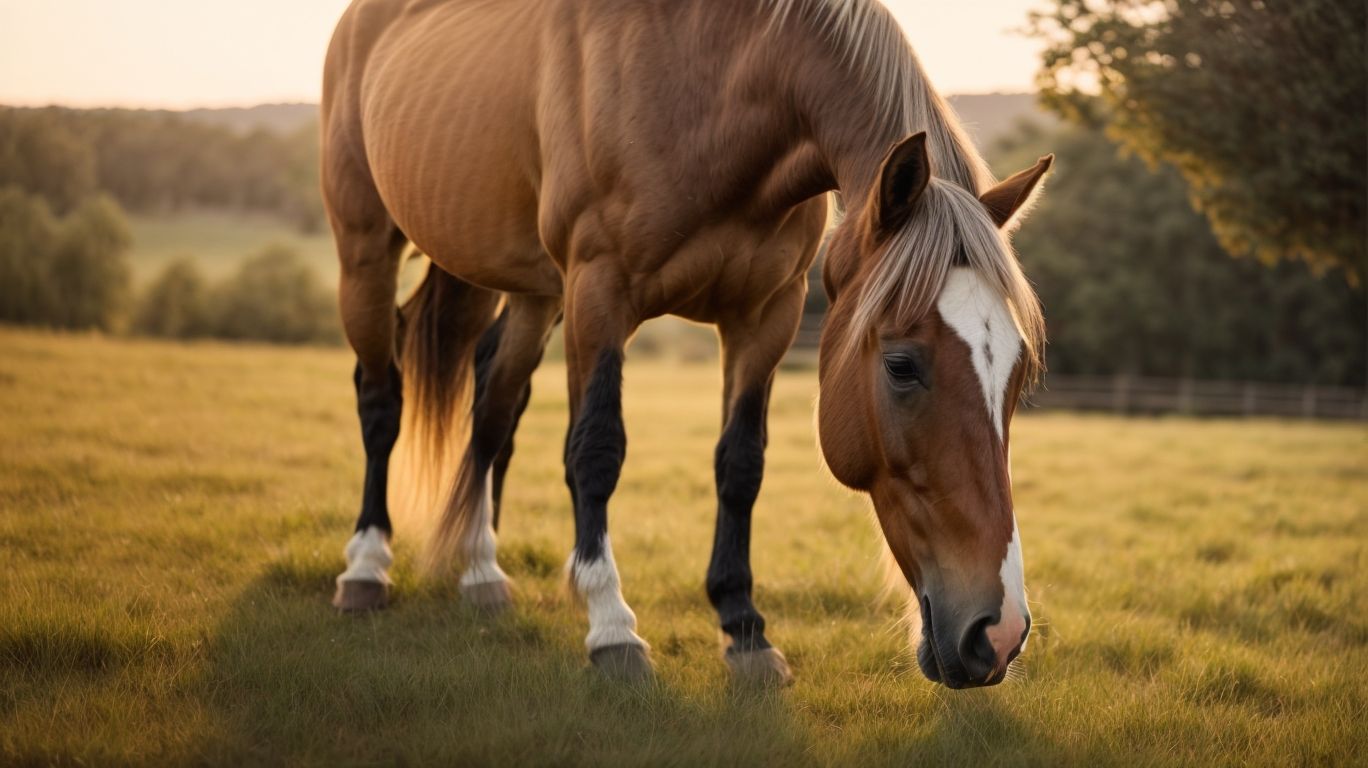Horses are magnificent creatures with unique behaviors that require proper management for a harmonious relationship between horse and handler. One particular behavior that can pose challenges is territorial behavior. Understanding and effectively handling territorial behavior in horses is crucial for a safe and productive equine-human interaction.
Territorial behavior in horses refers to their instinctual need to establish and defend their personal space or territory. This behavior can manifest in various ways and may differ from horse to horse. Signs of territorial behavior in horses include aggressive behaviors, such as kicking, biting, and charging, as well as defensive behaviors like aggressive posturing and vocalizations.
There are several reasons why horses may exhibit territorial behavior. These can include protection of resources, such as food, water, or shelter, as well as establishing social dominance within a herd or defending their territory from perceived threats.
To effectively handle territorial behavior in horses, several strategies can be implemented. First and foremost, it is essential to establish clear leadership and assert your role as the leader. Consistent and confident handling techniques, coupled with positive reinforcement, can help establish respect and set boundaries.
Providing sufficient exercise and mental stimulation is also crucial in managing territorial behavior. Engaging the horse in regular physical activity and offering enrichment opportunities can help redirect their energy and alleviate any pent-up aggression or frustration.
Creating a safe and secure environment for the horse is paramount. Ensuring proper fencing, adequate turnout space, and minimizing potential stressors can contribute to reducing territorial behavior.
Implementing desensitization and counter-conditioning techniques can also be effective in managing territorial behavior. Gradually exposing the horse to trigger stimuli and rewarding calm behavior can help desensitize them to potential triggers and create positive associations.
In some cases, seeking professional help from an experienced horse trainer or behaviorist may be necessary to address and modify territorial behavior.
Preventing territorial behavior in horses can also be achieved through early and proper socialization, where horses learn appropriate social behaviors from an early age. Routine handling and exposure to new environments can also aid in minimizing aggressive tendencies. Providing a balanced diet and nutritional support can help maintain overall health and hormonal balance, reducing the likelihood of territorial behaviors. Regular health check-ups and proper medical care are essential to address any underlying health issues that may contribute to behavioral problems.
By understanding territorial behavior, implementing effective management strategies, and taking preventive measures, horse handlers can ensure a safe and harmonious relationship with their equine companions.
Key takeaways:
- Clear leadership: Establishing clear leadership with your horse helps manage territorial behavior and create a harmonious relationship.
- Exercise and stimulation: Providing sufficient exercise and mental stimulation for your horse can reduce territorial behavior and promote overall well-being.
- Safe environment: Creating a safe and secure environment for your horse minimizes triggers for territorial behavior and ensures their physical and psychological safety.
Understanding Horse Behavior Management
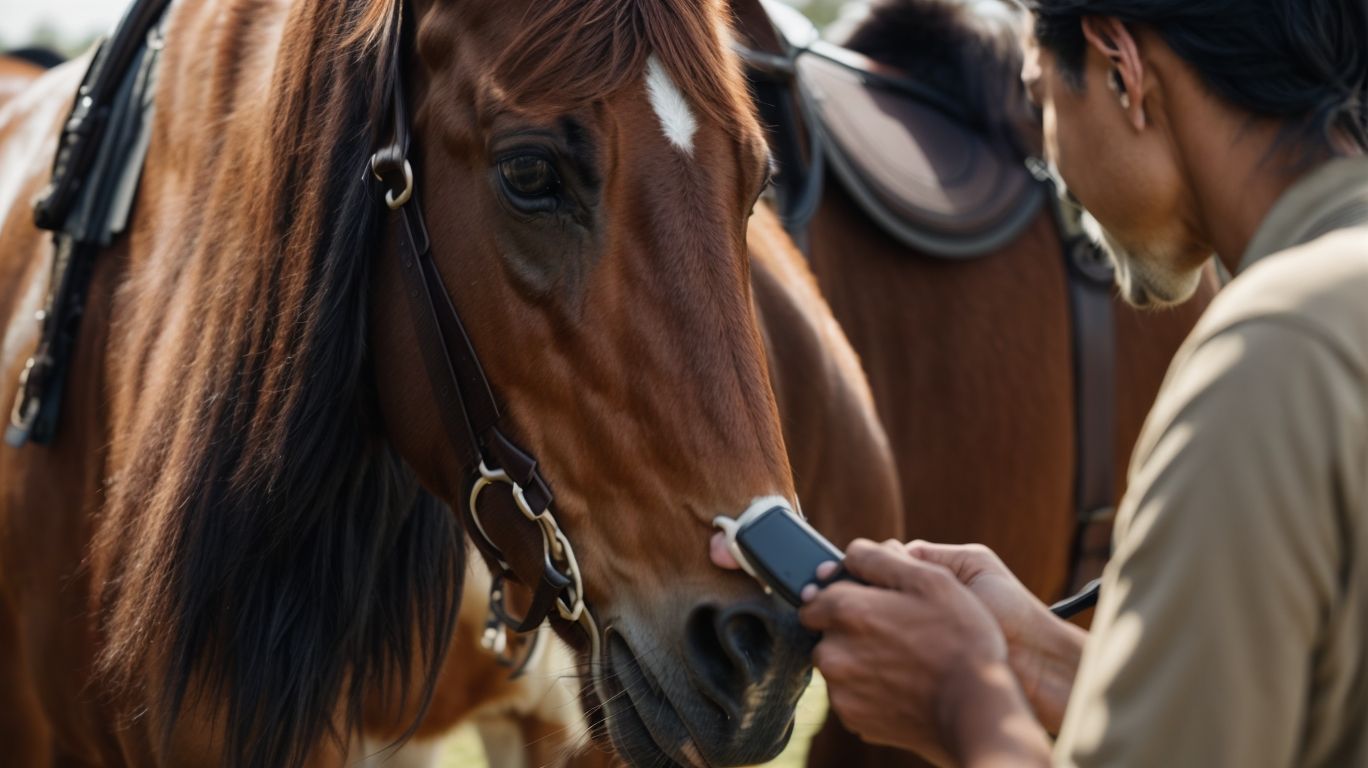
Photo Credits: Www.Horsespeakeducation.Com by Donald Clark
Understanding horse behavior management is a crucial aspect for horse owners and handlers. The key to this lies in comprehending their natural instincts, body language, and social dynamics. By having a deep understanding of how horses communicate and express themselves, you will be able to effectively handle and manage their behavior. It is of utmost importance to create a secure and positive environment while also setting clear boundaries and providing consistent training and socialization. Consistency in exercise and feeding routines plays a significant role in ensuring a well-behaved horse. However, the cornerstone of successful horse behavior management is building a strong bond founded on trust and respect.
What is Territorial Behavior in Horses?
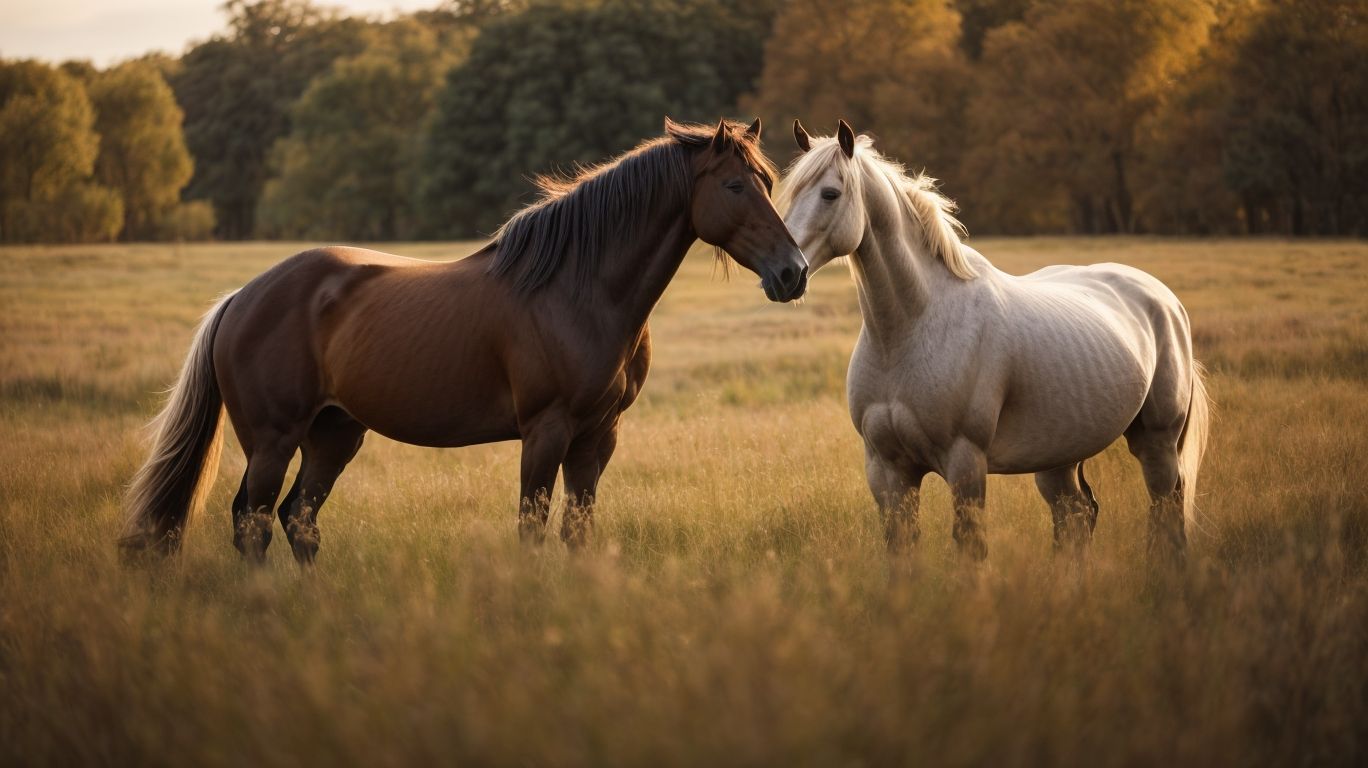
Photo Credits: Www.Horsespeakeducation.Com by Alan Lewis
When it comes to understanding our equine friends, one fascinating aspect to explore is territorial behavior in horses. In this section, we’ll dig into the intriguing world of equine territory and uncover the signs that indicate its presence as well as the reasons that drive this behavior. Get ready to gain insights into the complex dynamics of horses’ territorial instincts and discover how it influences their interactions and overall behavior.
Signs of Territorial Behavior in Horses
Signs of territorial behavior in horses can manifest in various ways. Aggressive displays towards other horses or humans, marking their territory with urine or manure, and defending their space from intruding individuals are among the common signs. These behaviors are natural and rooted in the survival instincts of horses. Recognizing and effectively managing these signs is crucial for horse owners and handlers.
Establishing clear leadership, providing sufficient exercise and mental stimulation, and creating a safe environment are effective strategies for minimizing territorial behavior. Seeking professional help is important, especially in more severe cases. Let me share a real-life story that highlights the effectiveness of addressing territorial aggression in horses.
One horse named Charlie exhibited territorial aggression towards other horses at the barn. However, through consistent training and socialization, his behavior gradually improved. This positive change led to a calmer and more harmonious environment for all. The example of Charlie demonstrates the impact of proper management and intervention in dealing with signs of territorial behavior in horses.
Reasons for Territorial Behavior in Horses
Territorial behavior in horses can be influenced by several reasons. One of the main factors is the horse’s natural instinct to establish and defend their territory, which can include their food, water, and shelter. Other reasons include the horse’s desire to establish dominance within a herd or when they feel threatened by other animals or unfamiliar objects in their environment. Hormonal changes, such as during breeding seasons, can also contribute to increased territorial behavior. To address reasons for territorial behavior in horses, it’s important to understand and address the underlying reasons. Providing a structured and safe environment, ensuring sufficient exercise and mental stimulation, and seeking professional help if needed are important strategies to manage territorial behavior in horses.
How to Handle Territorial Behavior in Horses
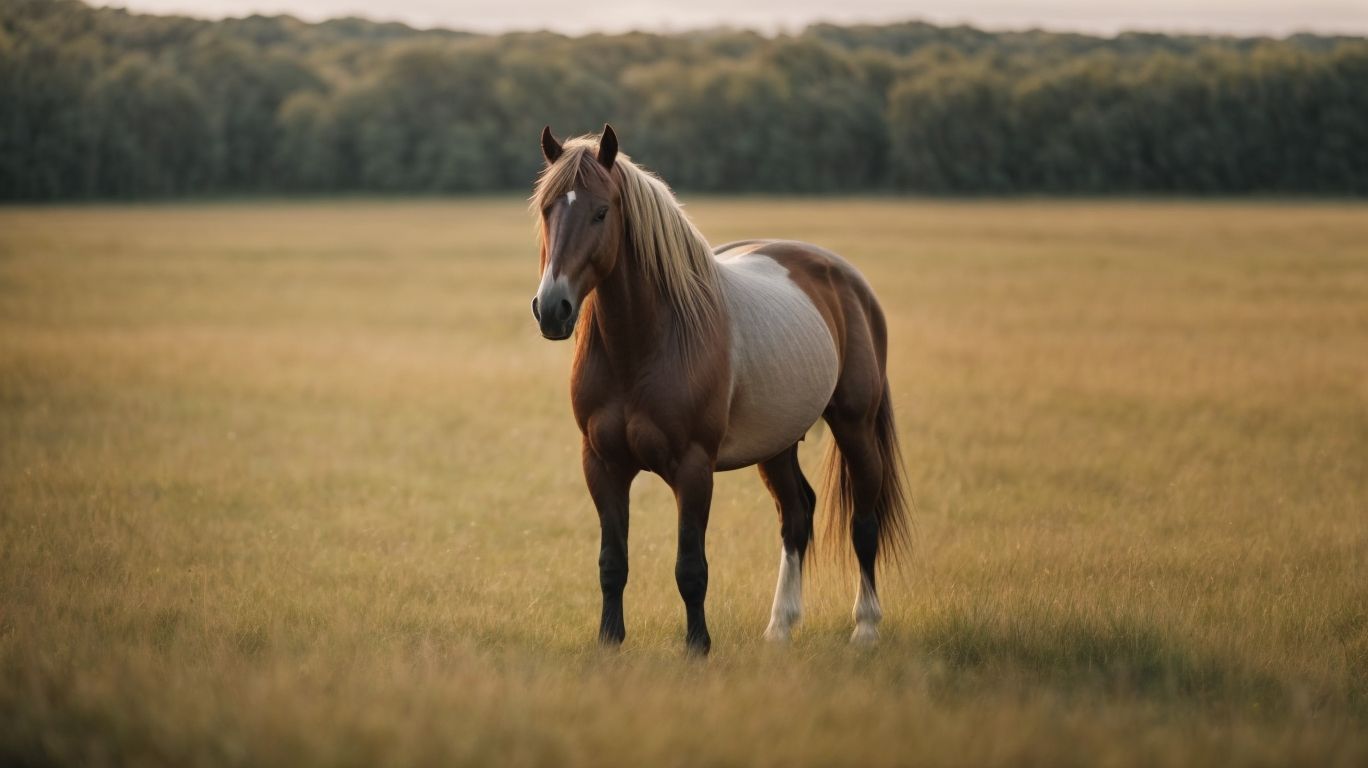
Photo Credits: Www.Horsespeakeducation.Com by Robert Thompson
Territorial behavior in horses can present unique challenges for their handlers. In this section, we’ll explore effective strategies to handle and manage territorial behavior in horses. From establishing clear leadership to providing sufficient exercise and mental stimulation, each sub-section offers valuable insights into creating a safe and secure environment for your equine companion. With techniques like desensitization and counter-conditioning, as well as seeking professional assistance when needed, you can navigate and address territorial behavior with confidence.
Establish Clear Leadership
When dealing with territorial behavior in horses, it is crucial to establish clear leadership. This can be accomplished by consistently training the horse, setting boundaries, and enforcing rules. By positioning yourself as the leader, you can earn the horse’s trust and respect, which aids in managing and reducing territorial behavior. It is imperative to establish effective communication and assert yourself as the decision-maker in different situations. Maintaining consistency plays a vital role in reinforcing the hierarchy within the herd dynamic. Through clear leadership, the horse will feel secure and less inclined to display territorial behavior.
Provide Sufficient Exercise and Mental Stimulation
Providing sufficient exercise and mental stimulation is crucial for managing territorial behavior in horses. Here are some effective strategies to achieve this:
- Regular Physical Exercise: Engage the horse in various activities such as riding, lunging, or turnout in a spacious paddock to provide sufficient exercise and release excess energy, thereby preventing frustration.
- Varied Training Sessions: Incorporate a range of exercises and obstacles to ensure that the horse is mentally stimulated and constantly challenged.
- Puzzle Toys and Treat Dispensers: Use interactive toys and treat dispensers to keep the horse’s mind engaged during stall time or while in the pasture, thus providing mental stimulation.
- Herding or Group Turnout: Allow the horse to socialize and interact with other horses in a controlled herd setting, which will stimulate natural herd behavior and provide mental and physical exercise.
- Environmental Enrichment: Provide objects like balls, hanging toys, or scratching posts to encourage exploration and playfulness, offering both mental stimulation and physical exercise.
By implementing these strategies, horse owners can effectively relieve boredom and provide the necessary mental and physical stimulation to minimize territorial behavior.
Create a Safe and Secure Environment
Create a safe and secure environment is crucial when it comes to managing territorial behavior in horses. Here are some suggestions to achieve this:
- Ensure sturdy fencing and secure gates to prevent escapes.
- Provide ample space and proper shelter for each horse to reduce competition for resources.
- Remove potential hazards from the environment, such as sharp objects or toxic plants.
- Implement a consistent routine to establish a sense of stability and reduce anxiety.
- Promote socialization by introducing horses to other compatible equine companions gradually.
- Keep the environment clean to minimize the risk of infections or diseases.
By following these guidelines, you can create a safe and secure environment that promotes positive behavior and minimizes territorial tendencies in horses.
Implement Desensitization and Counter-Conditioning Techniques
Implementing desensitization and counter-conditioning techniques is absolutely crucial when dealing with territorial behavior in horses. These techniques play a vital role in helping horses understand that certain triggers or stimuli are not a threat, ultimately reducing their aggressive response. Here are the steps you should follow when implementing these techniques:
- Identify the triggers: First and foremost, you need to determine the specific situations or objects that trigger territorial behavior in the horse.
- Create a controlled environment: Gradually exposing the horse to the triggers in a controlled and safe environment is a key component of this process.
- Start with desensitization: Initially, it is important to introduce the triggers at a low intensity and then gradually increase the exposure over time.
- Reward positive behavior: You should utilize positive reinforcement techniques, such as treats or praise, to reward the horse for remaining calm and relaxed during the process.
- Counter-conditioning: This step involves pairing exposure to the triggers with positive experiences or rewards to modify the horse’s emotional response.
- Practice consistency: Regularly practicing desensitization and counter-conditioning techniques is essential to reinforce the learning and ultimately reduce territorial behavior over time.
- Seek professional guidance: If you find yourself unsure or struggling with the process, it is highly recommended to consult with an experienced trainer or behaviorist who can provide additional guidance and support.
Seek Professional Help if Needed
Seeking professional help is crucial when dealing with territorial behavior in horses. If you find yourself unable to effectively manage or mitigate your horse’s territorial behavior, it is essential to consult with a knowledgeable and experienced equine behaviorist or trainer. These professionals have the expertise and skills to assess your horse’s behavior, identify the underlying causes, and develop a customized training plan. They can provide guidance on establishing clear leadership, implementing desensitization techniques, and creating a safe environment. Remember, seeking professional help if needed ensures the well-being and safety of both you and your horse.
I once had a horse that displayed severe territorial behavior, becoming aggressive towards other horses and people. Despite my best efforts, I couldn’t resolve the issue on my own. Seeking professional help if needed was the turning point in managing his behavior. With the guidance of an equine behaviorist, we developed a comprehensive training plan and made significant progress. Thanks to the expertise of the professional, my horse’s territorial behavior was successfully mitigated, allowing for a harmonious and safe environment for everyone involved.
Early and Proper Socialization
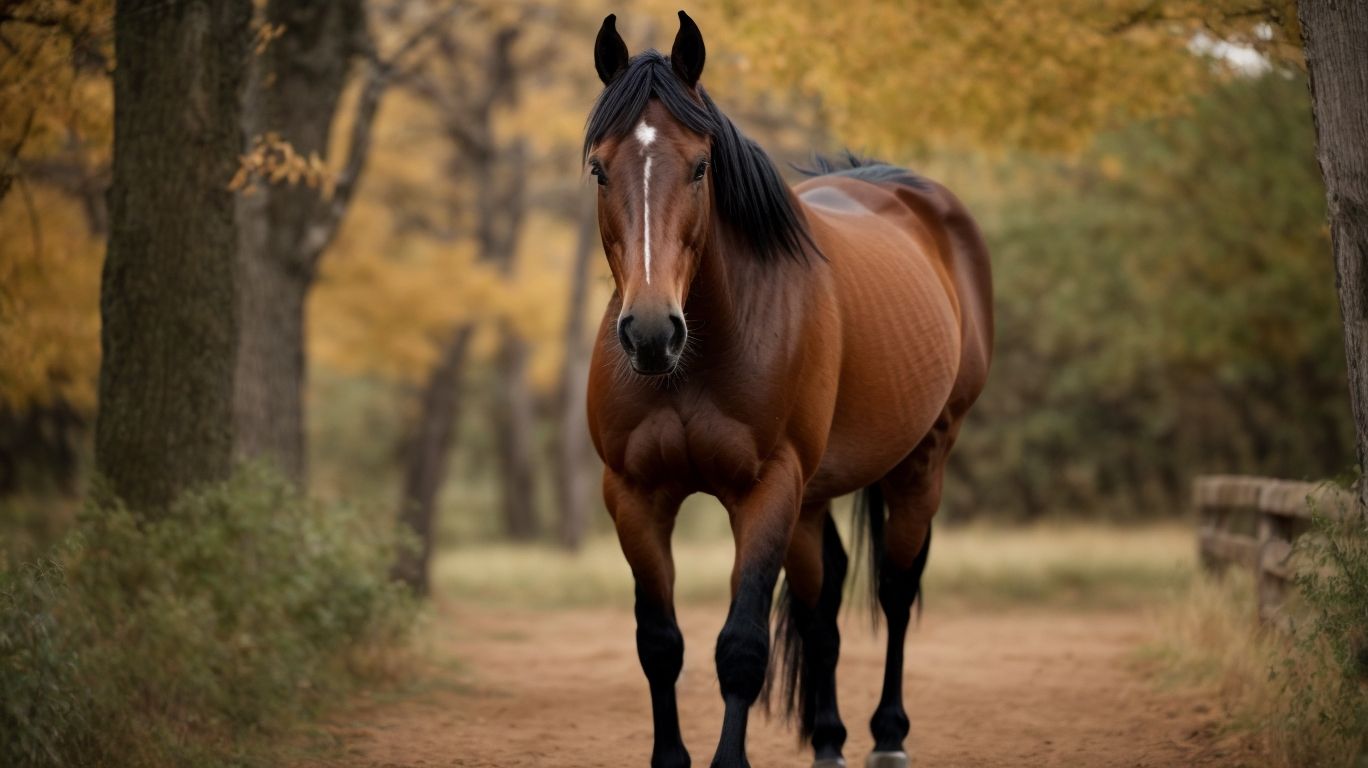
Photo Credits: Www.Horsespeakeducation.Com by Willie Nelson
Early and proper socialization is crucial for managing territorial behavior in horses. Here are some steps to follow:
- Introduce the horse to various environments and situations from a young age.
- Expose the horse to different horses, people, and animals to promote positive social interactions.
- Teach the horse basic obedience commands and reinforce them consistently.
- Provide plenty of positive reinforcement and rewards for good behavior during socialization.
- Monitor the horse’s behavior closely and address any signs of aggression or territoriality promptly.
- Continue socialization throughout the horse’s life to maintain good behavior and prevent territorial tendencies.
Early and proper socialization is imperative when it comes to managing territorial behavior in horses. To ensure successful training, it is essential to incorporate the following steps:
- From an early age, introduce the horse to diverse environments and situations.
- By exposing the horse to various horses, people, and animals, we can encourage positive social interactions.
- Teaching the horse basic obedience commands and consistently reinforcing them is crucial.
- During socialization, it is important to provide ample positive reinforcement and rewards for good behavior.
- Vigilantly monitor the horse’s behavior and promptly address any signs of aggression or territoriality.
- To maintain good behavior and prevent territorial tendencies, continue socialization throughout the horse’s life.
Routine Handling and Exposure to New Environments
Routine handling and exposure to new environments are crucial for effectively managing and preventing territorial behavior in horses. To promote adaptability, it is important to properly socialize horses by introducing them to various situations, people, and environments early on. In addition, regular handling should be maintained, which includes activities like grooming, leading, and interacting with different objects. Gradual exposure to new environments is essential in minimizing stress, starting with low-stress situations and gradually increasing complexity. Positive reinforcement is key, as horses should be rewarded for displaying calm and appropriate behavior in new environments, reinforcing positive associations. If necessary, seeking the assistance of a professional trainer or behaviorist can help address any specific territorial behavior issues that may arise.
Balanced Diet and Nutritional Support
Proper nutrition plays a crucial role in managing and preventing territorial behavior in horses. When it comes to providing a balanced diet and nutritional support, it is important to consider the following:
- Feed a well-balanced diet: It is crucial to ensure that your horse’s diet includes a good balance of proteins, carbohydrates, fats, vitamins, and minerals to provide balanced diet and nutritional support. To develop a customized diet plan, it is recommended to consult with a veterinarian or equine nutritionist.
- Provide adequate forage: Horses are natural grazers, so it is important to make sure they have access to high-quality pasture or hay. This not only promotes good digestive health but also satisfies their natural grazing instincts, contributing to balanced diet and nutritional support.
- Supplement as needed: Depending on your horse’s individual needs, you may need to provide additional supplements such as omega-3 fatty acids, joint support, or probiotics for balanced diet and nutritional support. Consulting with a professional can help determine the appropriate supplements.
- Maintain a consistent feeding schedule: Horses thrive on routines, so it is beneficial to feed them at regular intervals throughout the day. This helps avoid potential behavioral issues that may arise from hunger or irregular feeding patterns, ensuring balanced diet and nutritional support.
- Monitor body condition: Regularly assessing your horse’s body condition score and adjusting their diet as necessary is essential. This practice ensures that they receive appropriate nutrition without becoming overweight or underweight, contributing to balanced diet and nutritional support.
Regular Health Check-ups and Proper Medical Care
To maintain your horse’s overall well-being and prevent territorial behavior, it is crucial to incorporate regular health check-ups and proper medical care. These check-ups involve scheduling routine veterinary visits to monitor your horse’s health and promptly address any underlying issues. Following recommended vaccination and deworming schedules is vital in preventing diseases. Additionally, it is essential to provide a balanced diet and nutritional support tailored to your horse’s specific needs for optimal health. By prioritizing your horse’s physical well-being and seeking professional care when needed, you can create a healthy and happy environment, thereby minimizing the chances of territorial behavior.
Some Facts About Horse Behavior Management – Handling Territorial Behavior:
- ✅ Horses are prey animals and rely on flight as their main survival trait. (Source: Rutgers University)
- ✅ Horses have a fast response time to perceived threats. (Source: Rutgers University)
- ✅ Horses can be desensitized to frightening stimuli to differentiate between harmful and harmless objects. (Source: Rutgers University)
- ✅ Understanding a horse’s body language is crucial for effective training. (Source: Rutgers University)
- ✅ Horses establish a dominance hierarchy within their herd and exert dominance by controlling the movement of their peers. (Source: Rutgers University)
Frequently Asked Questions
How does a horse’s color vision affect its behavior?
Horses have poor color vision, but they can differentiate blue and red from gray hues. This can impact their perception of objects and surroundings, potentially influencing their behavior and reactions. For example, approaching a horse without talking to them in their blind spots can startle them and trigger defensive reactions.
What are the mechanics of a horse’s vision?
Horses have panoramic vision, with blind spots directly in front and behind them. They have poor depth perception when using only one eye, but their perception improves with binocular vision. They also have an acute ability to detect movement and can see fairly well at night, although they have lower contrast sensitivity than cats.
How do free-ranging circumstances affect a horse’s behavior?
In free-ranging circumstances, horses establish a dominance hierarchy within their herd. They exert dominance by controlling the movement of their peers. This natural behavior can influence how horses interact with humans and other horses in managed environments.
What are some common aggression-related behavior problems in horses?
Horses can display aggression towards people or other horses due to various reasons, such as dominance-related aggression, sexually related aggression, or aggression caused by pain-induced defensive reactions. Understanding the underlying cause is crucial for addressing and managing these behavior problems effectively.
How can behavior modification help in managing horse aggression?
Behavior modification techniques, such as desensitization and positive reinforcement, can be used to help horses differentiate between harmful and harmless objects or situations. By gradually exposing them to stimuli that trigger aggressive responses in a controlled and positive environment, their behavior can be reshaped and managed effectively.
What is the role of environmental management in handling horse aggression?
Managing the horse’s environment plays a crucial role in addressing aggression. Providing enough space, food, and social interaction, while also considering individual horse’s needs, can help prevent or reduce aggression. Establishing clear boundaries and managing the horse’s contact with others can also contribute to a more harmonious and well-behaved horse.
